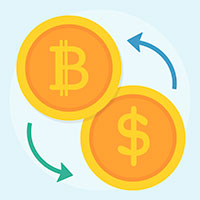Small clients with deposits of a few hundred dollars and 1:1000 leverage are those who at all times are the first to lose money, thus enriching intermediaries such as forex brokers. Forex-Awards.com has carried out a detailed analysis of the currency market and found out why this happens.
Peter Hill is an experienced forex trader, he gambles on the forex market for seven years already; he manages not only his own investment portfolio, but also the money of other private investors amounting up to $50,000. Over the years of online trading Peter has formulated the basic rule: trader’s profit is what he locks in profits and withdraws from his trading account and not the trader’s own money on a trading account which in fact is on the balance of the forex broker. “I constantly take profits and withdraw earnings to the bank deposits”, says Peter. He trades with several brokers including FXCM and FxPro. Maximum profit that Peter ever gained was 230% back in 2011. Peter believes that 35-50% profit per annum is a good and achievable rate. He says the main problem is the traders’ urge to earn a king’s ransom at a low level of investment.
He says the main problem is the traders’ urge to earn a king’s ransom at a low level of investment…
Classifying all market participants we can distinguish two categories of traders. The first one encloses large investors, banks and investment companies; the second category features small- and medium-sized clients with deposits from a few hundred dollars to $20,000 and a leverage of 1:1000. It is the second category of traders that is at the greatest risk. Based on the data provided by Forex-Ratings.com, over 70% of clients with leverage of 1:500 and above lose 100% of their deposit in the first month of trading, which means nothing else, but enriching brokers and other intermediaries.
Based on the data provided by Forex-Ratings.com, over 70% of clients with leverage of 1:500 and above lose 100% of their deposit in the first month of trading…
The main difference of the forex market compared to the stock market is its OTC nature. Forex market has no overall stock with identical quotes for all participants; exchange rates for different clients may be different at the same moment. Much depends on the trader’s size and status. This market is not homogeneous in its structure: the top level of the hierarchy includes global players, such as banks or investment companies. They make deals with each other using quasi stock markets, that is, the interbank and interdealer platforms.
Major interbank platforms are: Velocity by Citibank, Onyx by Credit Suisse, Cortex by BNP Paribas, Autobahn by Deutsche Bank, LMAX by InterBank. These trading systems have transparent pricing, same like on the exchange, where everyone plays against everyone. At that, as distinct from the stock market, on the forex market the dealer usually shows the client a quotation which already contains the dealer’s commission (we do not consider ECN here). Brokers earn on spread, that is, the difference between buy and sell price. A quotation the client will see depends on the amount of the transaction and the client’s status. Interdealer platforms provide different quotes to different clients. As a result big players get a better price than regular traders, partly because the platform does not gamble with currency and acts on the market with other purposes, such as to convert profits.
The quotes a client will see depend on the amount of the transaction and the client’s status.
Since in many countries forex market lacks transparency and regulation, it is quite common in such jurisdictions that brokers play against their own clients. Brokers can make reverse deals and hedge their positions. Profit of the brokers closing risks to themselves is formed mostly by losses of the deposits of the brokers’ own clients.
In case of a trader’s win when the broker does not have enough capital to provide coverage of this amount, a conflict of interest emerges.
In many countries and at many regulators currently there are no requirements to the funds of the forex brokers. In most cases forex brokers claim that they lead their clients to the foreign exchange market, world’s largest in volume. However, experts believe that forex brokers have software enabling distinction between the orders of the professional traders and newbies. The orders of the newbies never get to the market. The broker monitors not only the direction of the position, but also the amount of money in the client’s account, and the on which stop orders are placed.
For a short period of time the broker can purposefully make a change and trigger a stop loss, thus getting profit from the trader’s loss.
Another common fraud type is slippage. In the moments of severe market volatility freezing of trading platforms or failure of pending order execution may occur. It happens at times that technical problems are not a result of some software malfunction, but some broker’s activity instigated by an intention not to let the trader take profits. In fact the client is not being brought to the open market; all trade is done within the trading system, often on spurious quotations.
In companies of this type loss of the entire deposit is just a matter of time. According to Forex-Ratings.com, by the end of 2014 the percent of unscrupulous brokers amounted to at least 10% of the total number of market participants.
However, most brokers still faithfully perform their duties.
Then what’s the reason of the regular losses the traders bear?
Most experts agree that “the root of all evil” is a huge leverage offered by the vast majority of forex brokers. Leverage is a financial instrument, which allows traders to open positions which by times exceed the sum of the security deposit.
If someone is trading with 1:1000 leverage (which has become common for brokers), this means a $1,000 deposit allows him opening a position for $1,000,000. Rate change, e.g. USD/EUR from 1,325 to 1,324, results in a complete loss of the deposit. Fluctuations like this occur regularly within the trading day, and they are enough to lose the entire deposit within a few seconds.
Peter Hill says trading with such leverage is suicidal or casino-like, but it is not really forex trading. He personally rarely goes higher than 1:50 and recommends all traders not to go beyond oа 1:100 leverage.
 For active traders and investors, mastering the art of trading volatility is a crucial skill. Volatility, in financial terms, refers to the extent to which asset prices fluctuate over time. High volatility markets experience rapid price swings...
For active traders and investors, mastering the art of trading volatility is a crucial skill. Volatility, in financial terms, refers to the extent to which asset prices fluctuate over time. High volatility markets experience rapid price swings... The global financial market operates as a dynamic ecosystem, where understanding the connections between different market movements can provide invaluable insights for forecasting...
The global financial market operates as a dynamic ecosystem, where understanding the connections between different market movements can provide invaluable insights for forecasting... The forex market, also known as the foreign exchange market, stands as the largest and most traded financial market globally. FXTM is committed to equipping our clients...
The forex market, also known as the foreign exchange market, stands as the largest and most traded financial market globally. FXTM is committed to equipping our clients... Cryptocurrency trading has rapidly grown into a bustling and dynamic market that attracts traders from around the world. With the potential for significant profits...
Cryptocurrency trading has rapidly grown into a bustling and dynamic market that attracts traders from around the world. With the potential for significant profits... The year 2023 has been a landmark period for the international broker Octa (formerly known as OctaFX), characterized by significant achievements and substantial contributions...
The year 2023 has been a landmark period for the international broker Octa (formerly known as OctaFX), characterized by significant achievements and substantial contributions...